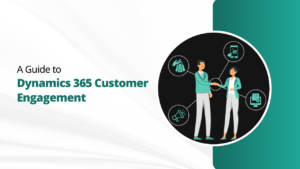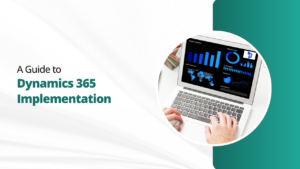In this competitive business world, organizations constantly seek ways to enhance their operational efficiency, improve decision-making, and stay ahead of others. One critical decision that businesses face is whether to upgrade their existing legacy ERP systems or shift to cloud-based ERP solutions. In this article, we will explore the key reasons why it’s time to upgrade from legacy ERP to cloud ERP.
What is Cloud ERP:
Cloud ERP refers to an ERP system that is hosted and operated in the cloud by a service provider. Instead of running the software on-premises, businesses use a web browser or dedicated applications to access the ERP system through the internet.
What is Legacy ERP:
Legacy ERP refers to traditional, on-premises ERP systems that were implemented in the past and continues to be operated within a company’s own data center. These systems typically require dedicated hardware, infrastructure, and IT support for upcoming business needs and technological advancements.
Cloud ERP vs Legacy ERP:

Cloud ERP is hosted and managed by a service provider in the cloud, offering enhanced accessibility, mobility, scalability, and flexibility. It operates on a subscription-based model with regular updates and provides robust security measures. On the other hand, legacy ERP systems are on-premises, requiring infrastructure and IT support internally. Legacy ERP systems often have limitations in accessibility, scalability, and timely updates. They involve higher upfront costs and require organizations to manage and maintain the infrastructure and security
Key Reasons Why You Should Upgrade to Cloud ERP:
Here are some reasons why you need to upgrade your ERP:
1. Modernization:
Legacy ERP systems are often characterized by outdated technology, rigid architectures, and limited customization capabilities. This hinders businesses from adapting quickly to new market demands. Cloud ERP, on the other hand, offers modern solutions with flexible configurations, customizable workflows, and scalability. Upgrading the ERP system empowers businesses to optimize workflows, and respond swiftly to market changes, driving efficiency and agility throughout the organization.
2. Enhanced Accessibility:
Legacy ERP systems typically require users to be physically present in the office or connected through complex VPN setups to access the system. This limits accessibility and collaboration, especially in remote work environments or during business travels. Cloud-based ERP breaks these barriers by providing seamless accessibility via the Internet, enabling employees to access real-time data, perform tasks, and collaborate from anywhere at any time.
3. Scalability for Business Growth:
Scaling a legacy ERP system often involves costly hardware upgrades, additional licenses, and lengthy implementation processes. In contrast, cloud ERP offers effortless scalability, allowing businesses to add or remove users, modules, or resources as needed. This scalability ensures that the ERP system can support business growth without the burden of significant upfront investments or disruptions.
4. Cost Savings and Reduced IT Burden:
Legacy ERP systems often require substantial upfront investments in hardware, infrastructure, software licenses, and ongoing maintenance. Additionally, maintaining and upgrading legacy systems can be resource-intensive and time-consuming for the IT department. Cloud-based ERP systems operate on a subscription-based model, eliminating the need for costly infrastructure investments and reducing ongoing maintenance and upgrade efforts.
5. Advanced Analytics and Insights:
Cloud-based ERP solutions are built with advanced analytics capabilities, enabling businesses to derive valuable insights from their data. These insights empower informed decision-making, predictive analytics, and data-driven strategies. Legacy ERP systems, on the other hand, typically lack robust analytics functionalities and require additional tools or manual data extraction and analysis.
5 Risks of Keeping Legacy ERP:
Operating a legacy ERP system poses several risks and challenges such as:
- Limited scalability and flexibility hinder business growth and agility.
- Higher maintenance and support costs drain resources and budget.
- Inefficient and outdated processes hamper operational efficiency and productivity.
- Increased security vulnerabilities expose the organization to potential data breaches.
- Lack of integration with modern technologies and systems limits competitiveness and innovation.
Consider Tech Implement Your Trusted Partner
As a leading provider of innovative solutions, including Dynamics 365 Finance and Operations, we offer comprehensive expertise to help businesses navigate their digital transformation journey. From seamless implementation and data migration to ongoing support and training, our team ensures a smooth transition to the cloud. Partner with Tech Implement for a reliable and transformative ERP experience that unlocks your business’s full potential.
Conclusion:
The shift from legacy ERP systems to cloud ERP is becoming increasingly imperative for businesses aiming to thrive in the digital age. Cloud ERP offers modernization, agility, enhanced accessibility, scalability, cost savings, and advanced analytics capabilities. It enables organizations to streamline operations, improve collaboration, respond quickly to market changes, and position themselves for future growth. By embracing it, businesses can unleash their full potential, remain competitive, and achieve long-term success in a rapidly evolving business landscape. It’s time to upgrade to cloud-based ERP and unlock the advantages of a modern and innovative ERP solution.




